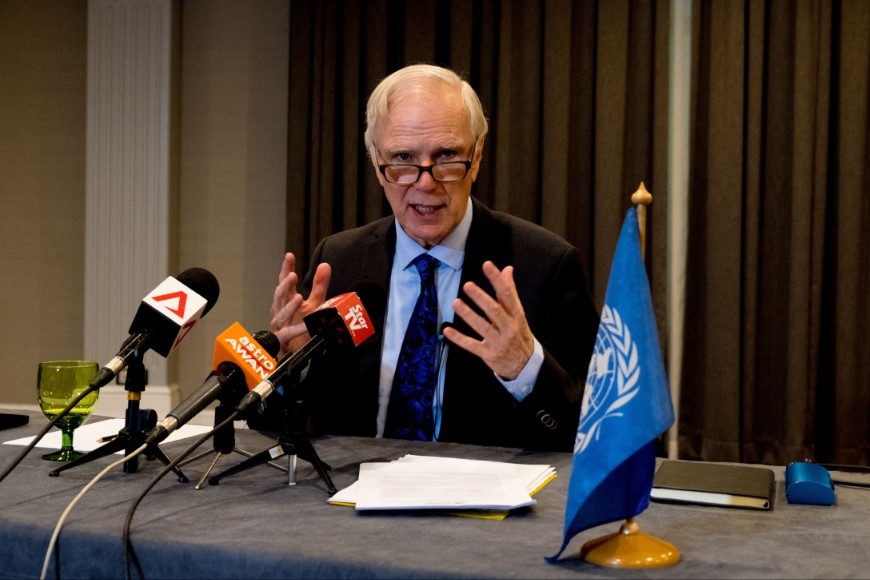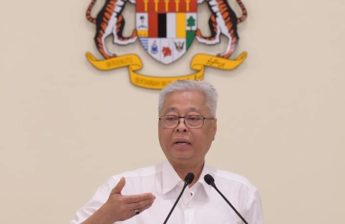KUALA LUMPUR, July 7 — The Malaysian government defended the socioeconomic segregation of the country’s dual health care system despite congestion and delayed treatment in public facilities, said a United Nations report.
Philip Alston, a former UN Special Rapporteur on extreme poverty and human rights, who visited Malaysia from August 13 to 23 last year, found that lower-income households in Malaysia predominantly sought care at government health facilities, whereas higher-income households accounted for two-thirds of visits to private medical centres.
“In its response to the Special Rapporteur, the government incomprehensibly characterised this as evidence of a ‘progressive health system’,” Alston wrote in a report that will be presented by his successor, Olivier de Schutter, at the UN Human Rights Council later today.
He noted that an estimated 70 per cent of specialists are in the more costly private health care system in Malaysia, typically located in richer areas, but they treat only 30 per cent of complicated cases.
“This lopsided allocation creates shortages of critical staff in an overburdened public health-care system and has contributed to ‘rising incidences of overcrowding, long waiting times, delayed consultation and late admission for emergency cases’,” Alston wrote.
The independent expert found “a real challenge” for rural people in Malaysia to access health services, medicines, and vaccines, noting that a third of rural households in Sabah and 43.6 per cent in Sarawak lived more than 9km from a public health centre. Villagers must travel even further to a hospital for any serious medical condition.
“Stakeholders emphasised that health care is in effect not free for those who cannot afford to get to a health centre or a hospital,” said Alston, who travelled to Kuala Lumpur, Selangor, Sarawak, Sabah, and Kelantan during his August 2019 visit.
He, however, also noted that Malaysia’s health care services were reasonably accessible for most of the population, citing a World Bank statistic that only 1.4 per cent of Malaysian households experience catastrophic health expenditure.
“Despite a relatively low level of public expenditure on health, households receive protection from the financial risks of high health care costs where care is accessible,” Alston wrote.
“Malaysia has come very close to providing universal health care and should strongly consider legislating a national right to health care to cement its commitment to ensuring that every household is able to access the highest standards of physical and mental health.”
Indigenous People, Migrant Workers, Transgender Can’t Access Health Services
Alston reported that indigenous people, migrant workers, and transgender people in Malaysia faced exclusion from health care services.
Some indigenous women reportedly accused health officials of forcing them to take contraceptive injections or implants without their consent, which Alston described as an “appallingly authoritarian approach by health authorities to indigenous peoples.”
“One woman described begging doctors to remove an unwanted and painful implant that prevented her from carrying out daily tasks and said the removal had cost her the equivalent of a month’s worth of household expenses,” Alston wrote.
Land rights are especially important for indigenous people, who have for years raised concerns about the impact of logging and loss of land on their health, well-being, housing, and food security. But Alston noted that states in Malaysia continued to find “devious” ways to deprive indigenous communities of their land by declaring the land as a “forest reserve” while allowing companies to exploit the area.
“One person said, ‘We never said we were facing extreme poverty. The government is saying that and using it to justify projects that do not benefit us’,” said Alston.
“A civil servant in Sarawak tellingly claimed that indigenous people do not actually ‘use’ the land, they merely ‘roam around’.
Philip Alston, former UN Special Rapporteur on extreme poverty and human rights
“Like her, many policymakers seem to assume a hierarchy of potential land uses that ranks corporate extraction of profit above sustainable cultivation by indigenous peoples,” added Alston.
Alston told the Malaysian government to ratify the ILO Indigenous and Tribal Peoples Convention, 1989 (No. 169) and to practice informed consent in matters concerning the lands and livelihoods of indigenous peoples.
The former UN Special Rapporteur also urged the government to routinely publish disaggregated poverty and income data on indigenous peoples, instead of the current practice of combining their information together with Malays within the umbrella Bumiputera category.
The most recently available data, albeit outdated from a decade ago, showed indigenous poverty rates vastly exceeded national averages at 31.16 per cent for the Orang Asli in 2010; and 22.8 per cent in Sabah and 6.4 per cent in Sarawak in 2009.
Migrant workers — estimated to number between three and six million in Malaysia, comprising both documented and undocumented workers — are excluded from official poverty figures. But it can be safely assumed that they have higher rates of poverty than the general population, due to their disproportionate employment in low-skilled labour, low pay, and exclusion from social support, besides suffering wage theft, said Alston.
“Unlike in many countries, irregular workers in Malaysia cannot enforce their rights without risking detention and deportation,” Alston wrote.
He noted that women — who comprise an estimated 20 per cent of migrant workers in 2016 and are usually employed as domestic workers — have been particularly abandoned, as the Employment Act 1955 excludes them from basic protections like leave days, medical coverage, and restrictions on working hours.
“In its response to the Special Rapporteur, the government inexplicably asserted that inspection of the labour conditions of domestic workers was ‘impossible’.”
Migrant workers are charged a “foreigner” rate at public health facilities, up to 40 times what a Malaysian citizen pays. Undocumented migrant workers avoid public health faclities because of document checks and potential involvement of immigration authorities.
“The government confirmed that undocumented people receiving treatment would subsequently be detained and deported,” said Alston.
Alston also found an over-representation of lesbian, gay, bisexual, transgender, queer, and intersex people among people in poverty, which he attributed to “persistent stigmatisation and discrimination”.
He cited research in Selangor and Kuala Lumpur that showed transgender people faced considerable challenges in accessing basic services like health care and education, besides experiencing employment discrimination.








